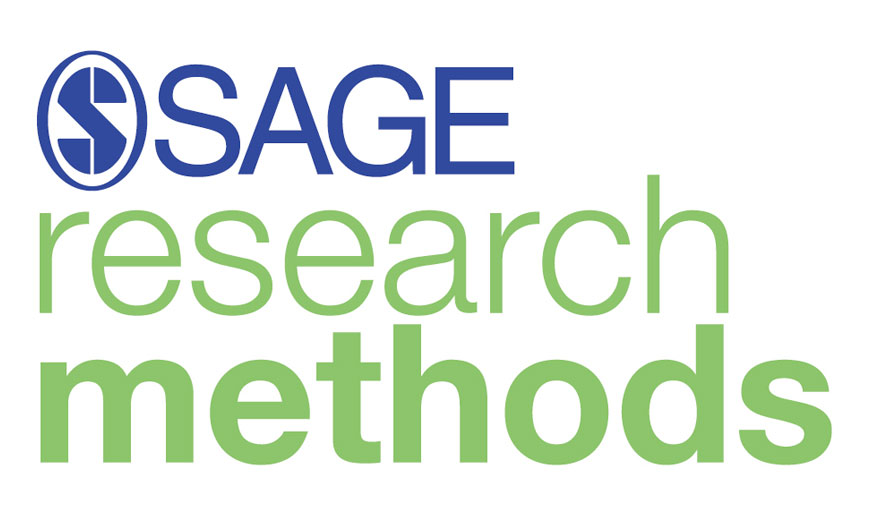Introduction to SAGE Research Methods for Academic Writing|2025
Introduction to SAGE Research Methods for academic writing: Explore essential tools and techniques to enhance your research, analysis, and scholarly writing skills.
Academic writing is a fundamental aspect of scholarly communication, providing a structured way for researchers to present their findings and contribute to knowledge. To conduct rigorous and well-supported research, scholars rely on methodological frameworks that ensure the validity and reliability of their work. SAGE Research Methods is a comprehensive online resource designed to support researchers at all levels by offering access to a wide range of materials on research methodologies. This paper explores the significance of SAGE Research Methods, its key components, and how it facilitates academic writing.
Understanding Research Methods in Academic Writing
Research methods are systematic procedures used to investigate problems, gather data, analyze findings, and draw conclusions. They provide a structured approach to conducting research, ensuring that the process is replicable and credible. Research methods can be broadly categorized into qualitative, quantitative, and mixed methods, each serving distinct purposes in academic writing.
- Qualitative Research Methods: These methods focus on exploring phenomena in-depth, often using interviews, focus groups, case studies, and content analysis. They emphasize meaning, experience, and interpretation.
- Quantitative Research Methods: These involve numerical data collection and statistical analysis to identify patterns, relationships, and causal effects. Surveys, experiments, and secondary data analysis are common techniques.
- Mixed Methods: This approach combines qualitative and quantitative techniques to provide a comprehensive understanding of a research problem.
SAGE Research Methods offers extensive resources on these methodologies, guiding researchers in selecting appropriate techniques based on their research questions and objectives.
Overview of SAGE Research Methods
SAGE Research Methods is an online platform that provides access to a wealth of resources covering various aspects of research methodology. The platform is tailored to help students, researchers, and faculty understand and apply different research techniques effectively.
Key Features of SAGE Research Methods
- Books and Reference Materials: The platform includes a vast collection of books, encyclopedias, and handbooks that offer detailed explanations of research concepts.
- Case Studies: Real-world examples illustrate how research methodologies are applied in different disciplines.
- Datasets: SAGE provides datasets that researchers can use for hands-on practice in data analysis.
- Videos: Experts share insights on research methodologies, enhancing understanding through visual learning.
- Project Planner: A step-by-step guide assists researchers in designing and executing their projects.
By offering these resources, SAGE Research Methods supports academic writing by providing structured guidance at every stage of the research process.
Role of SAGE Research Methods in Academic Writing
Academic writing involves presenting research findings clearly, concisely, and coherently. SAGE Research Methods plays a crucial role in enhancing the quality of academic writing in several ways:
1. Assisting in Literature Review
A strong literature review is essential for situating research within existing scholarship. SAGE Research Methods helps researchers identify relevant theories, frameworks, and methodologies used in previous studies. This ensures that academic writing is well-grounded in established research traditions.
2. Guiding Research Design and Methodology
Choosing the right research design is crucial for obtaining valid and reliable results. SAGE Research Methods provides in-depth discussions on various research designs, including experimental, longitudinal, and ethnographic approaches. Researchers can access case studies and best practices to make informed decisions about their methodological choices.
3. Providing Insights into Data Collection and Analysis
Academic writing requires precise data collection and analysis techniques to support arguments and conclusions. SAGE Research Methods offers tutorials, sample datasets, and statistical tools that guide researchers in collecting and interpreting data effectively. This ensures that academic writing is evidence-based and methodologically sound.
4. Enhancing Argumentation and Critical Thinking
Strong academic writing requires critical thinking and logical argumentation. By offering expert insights into research methodologies, SAGE Research Methods equips researchers with the analytical skills needed to construct well-reasoned arguments and critiques.
5. Improving Clarity and Rigor in Writing
Academic writing must be clear, precise, and structured. SAGE Research Methods provides templates, writing guides, and style recommendations to help researchers articulate their findings effectively. It also offers insights into ethical considerations, ensuring that research adheres to academic integrity standards.
Application of SAGE Research Methods in Different Disciplines
SAGE Research Methods is relevant across various academic disciplines, offering tailored guidance for different fields of study:
- Social Sciences: Provides resources on qualitative and quantitative research methods used in psychology, sociology, and political science.
- Business and Management: Covers case study research, market analysis, and statistical modeling techniques.
- Health and Medicine: Offers insights into clinical trials, epidemiological studies, and qualitative research in healthcare.
- Education: Supports action research, ethnographic studies, and survey methodologies in educational research.
- STEM (Science, Technology, Engineering, and Mathematics): Guides researchers in experimental design, hypothesis testing, and statistical analysis.
Challenges and Limitations
Despite its numerous benefits, using SAGE Research Methods comes with some challenges:
- Accessibility: Subscription costs may limit access for independent researchers and institutions with budget constraints.
- Information Overload: The vast array of resources can be overwhelming for beginners unfamiliar with research methodologies.
- Context-Specificity: Some methodologies may not be directly applicable across different research contexts, requiring additional customization.
To mitigate these challenges, researchers can seek institutional access, use search filters to navigate resources effectively, and consult academic advisors for guidance on methodology selection.
Conclusion
SAGE Research Methods is an invaluable resource for academic writing, providing comprehensive support for researchers at all levels. By offering access to books, case studies, datasets, and expert insights, the platform enhances the quality and rigor of research. Whether conducting a literature review, designing a research methodology, or analyzing data, scholars can rely on SAGE Research Methods to navigate the complexities of academic writing effectively. As research continues to evolve, platforms like SAGE will remain crucial in fostering a culture of methodological excellence and scholarly communication.
Needs help with similar assignment?
We are available 24x7 to deliver the best services and assignment ready within 3-4 hours? Order a custom-written, plagiarism-free paper




